第2章 I.(2)
As for the hides, they were the skins of four steers that had perished in the blizzard last winter through the wanton carelessness of these same hired men, and the price they would bring would not half pay for the time his father had spent in stripping and curing them. They had lain in a shed loft all summer, and the wagon had been to town a dozen times. But today, when he wanted to go to Frankfort clean and care-free, he must take these stinking hides and two coarse-mouthed men, and drive a pair of mules that always brayed and balked and behaved ridiculously in a crowd. Probably his father had looked out of the window and seen him washing the car, and had put this up on him while he dressed. It was like his father's idea of a joke.
Mrs. Wheeler looked at Claude sympathetically, feeling that he was disappointed. Perhaps she, too, suspected a joke. She had learned that humour might wear almost any guise.
When Claude started for the barn after breakfast, she came running down the path, calling to him faintly,--hurrying always made her short of breath. Overtaking him, she looked up with solicitude, shading her eyes with her delicately formed hand. "If you want I should do up your linen coat, Claude, I can iron it while you're hitching," she said wistfully.
Claude stood kicking at a bunch of mottled feathers that had once been a young chicken. His shoulders were drawn high, his mother saw, and his figure suggested energy and determined self-control.
"You needn't mind, mother." He spoke rapidly, muttering his words. "I'd better wear my old clothes if I have to take the hides. They're greasy, and in the sun they'll smell worse than fertilizer."
"The men can handle the hides, I should think. Wouldn't you feel better in town to be dressed?" She was still blinking up at him.
"Don't bother about it. Put me out a clean coloured shirt, if you want to. That's all right."
He turned toward the barn, and his mother went slowly back the path up to the house. She was so plucky and so stooped, his dear mother! He guessed if she could stand having these men about, could cook and wash for them, he could drive them to town!
Half an hour after the wagon left, Nat Wheeler put on an alpaca coat and went off in the rattling buckboard in which, though he kept two automobiles, he still drove about the country. He said nothing to his wife; it was her business to guess whether or not he would be home for dinner. She and Mahailey could have a good time scrubbing and sweeping all day, with no men around to bother them.
There were few days in the year when Wheeler did not drive off somewhere; to an auction sale, or a political convention, or a meeting of the Farmers' Telephone directors;--to see how his neighbours were getting on with their work, if there was nothing else to look after. He preferred his buckboard to a car because it was light, went easily over heavy or rough roads, and was so rickety that he never felt he must suggest his wife's accompanying him. Besides he could see the country better when he didn't have to keep his mind on the road. He had come to this part of Nebraska when the Indians and the buffalo were still about, remembered the grasshopper year and the big cyclone, had watched the farms emerge one by one from the great rolling page where once only the wind wrote its story. He had encouraged new settlers to take up homesteads, urged on courtships, lent young fellows the money to marry on, seen families grow and prosper; until he felt a little as if all this were his own enterprise.
The changes, not only those the years made, but those the seasons made, were interesting to him.